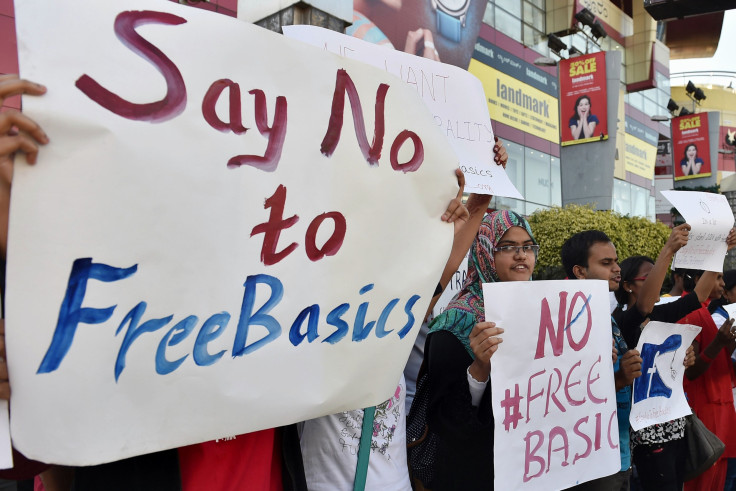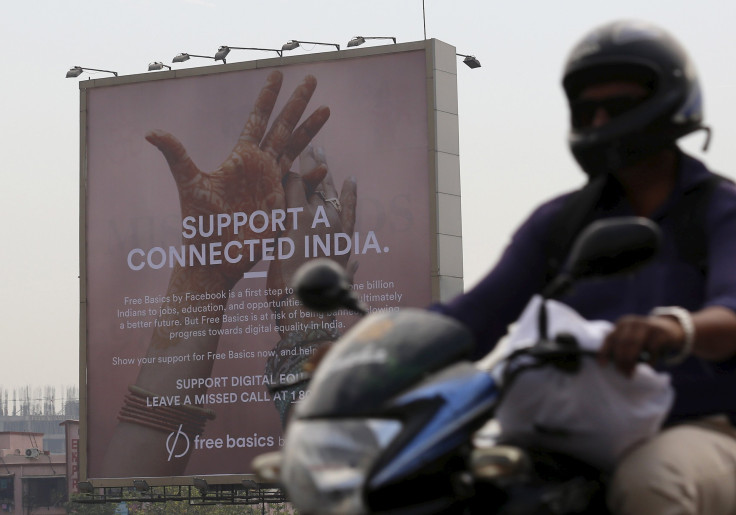Facebook Shuts Down Controversial ‘Free Basics’ Service In India After Regulatory Setback

Days after Indian regulators ruled against Facebook’s “Free Basics,” which gives subscribers free access to a select few web services, the tech giant officially scrapped the service in the country.
“Free Basics is no longer available to people in India,” a Facebook spokesperson told International Business Times in an emailed statement Thursday, refuting earlier reports that suggested the service may diverge from its stated goal and transform into a into a paid one.
Last year, Facebook teamed up with India’s Reliance Communications Ltd. to offer subscribers free access to certain services, calling it an important step toward ensuring “universal connectivity.” However, Facebook soon encountered fierce opposition to the service from startup founders who expressed fears that they would be put at a competitive disadvantage, and internet activists who decried it as an attempt to undermine net neutrality — which calls for internet service providers to treat all content the same, regardless of the source.

In December, the Telecom Regulatory Authority of India (TRAI) asked Reliance to stop providing access to Free Basics while it examined whether the service should be legal. And, on Monday, it ruled against Free Basics, stating that companies should not be allowed to “ shape the users’ internet experience” by providing selective access to services.
“While we're disappointed with today's decision, I want to personally communicate that we are committed to keep working to break down barriers to connectivity in India and around the world,” Facebook founder Mark Zuckerberg said, in a statement released Monday. “Connecting India is an important goal we won't give up on, because more than a billion people in India don't have access to the internet.”
The company’s decision to officially end the service comes amid an ongoing furore over a tweet by Facebook board member Marc Andreessen. In the tweet, which has since been deleted, Andreessen, in response to remarks by other Twitter users who compared Facebook’s efforts to a colonialist approach, wrote: “Anti-colonialism has been economically catastrophic for the Indian people for decades. Why stop now?”
Andreessen’s comments, which elicited a swift and negative reaction, were soon disavowed by Zuckerberg, who termed them “deeply unsettling.”
“[Andreessen's comments] do not represent the way Facebook or I think at all,” Zuckerberg said, in a Facebook post Wednesday. “India has been personally important to me and Facebook. … As our community in India has grown, I've gained a deeper appreciation for the need to understand India's history and culture.”
© Copyright IBTimes 2024. All rights reserved.






















